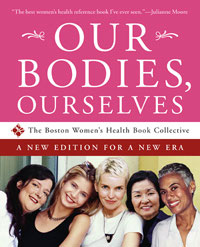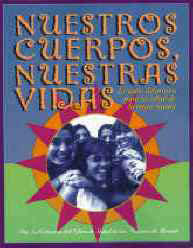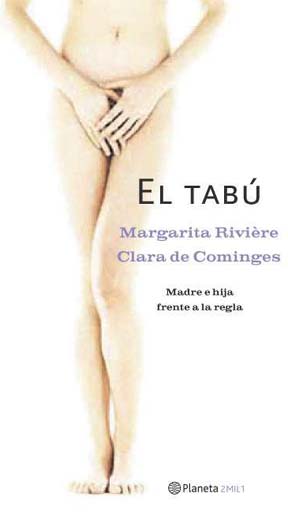COMIC STRIP: "A Visit to the Museum of Menstruation"
DIRECTORY of all topics (See also the SEARCH ENGINE, bottom of page.)
CONTRIBUTE to Humor, Words and expressions about menstruation
and Would you stop menstruating if you could?
Some MUM site links: homepage | LIST OF ALL TOPICS | MUM address
& What does MUM
mean? | e-mail the museum | privacy on this site | who runs
this museum?? |
Amazing women! | the art
of menstruation | artists (non-menstrual)
| asbestos | belts
| bidets | founder bio
| Bly, Nellie | MUM board
| books: menstruation and menopause (and reviews) | cats | company
booklets for girls (mostly) directory | contraception
and religion | costumes | menstrual cups | cup usage | dispensers | douches, pain, sprays
| essay directory | extraction
| facts-of-life booklets for girls | famous women in menstrual hygiene ads | FAQ
| founder/director biography | gynecological
topics by Dr. Soucasaux | humor | huts | links | masturbation
| media coverage of MUM | menarche
booklets for girls and parents | miscellaneous
| museum future | Norwegian
menstruation exhibit | odor | olor
| pad directory | patent
medicine | poetry directory | products,
current | puberty booklets for girls and parents
| religion | Religión
y menstruación | your remedies for
menstrual discomfort | menstrual products safety
| science | Seguridad de
productos para la menstruación | shame
| slapping, menstrual | sponges
| synchrony | tampon
directory | early tampons | teen
ads directory | tour of the former museum
(video) | underpants
& panties directory | videos, films directory
| Words and expressions about
menstruation | Would you stop
menstruating if you could? | What did women
do about menstruation in the past? | washable pads
Leer la versión en español de los siguientes temas: Anticoncepción y religión, Breve reseña - Olor - Religión y menstruación - Seguridad de productos para la menstruación.


Continued to next earlier News & Notes
NEW this month (news & letters BELOW):
Gynotex dry and wet sponge tampons - "Bodies that Bleed: Sex as Fiction in Janice Galloway's 'Blood,'" by Agnieszka Morusiewicz, University of Silesia, Poland - "Rojo" ["Red"] and "De la breve y triste historia de la regla (y un poquito más)" ["About the brief and sad history of the period (and a little bit more)"] by María García, Argentina, in Spanish and English - Luiza Brown: The Art of Menstruation - Your remedies for menstrual discomfort - Additions to bibliography of Religion and Menstruation/Melanesia - Humor
Would you stop menstruating if you could?
Words and expressions
about menstruation: New: New
Zealand: having my friend, Having my mate,
I've got my George; U.S.A.: Bleeding
out the hoo-ha, Diaper up, Diapering up, Fluffing it, Reasserting my femininity,
Scourge of Eve [with a comment on the use of "PMS"], Stick a cork
in it, That time [second user]
What did European and American women use for menstruation
in the past?
Humor
Documentary on Menstruation Looking for Participants
Are you a mother who wants to celebrate the beginning of your daughter's menstrual cycle? Are you a daughter who has just started your period and are embarrassed or proud? An ongoing documentary project .(Period): The End of Menstruation? directed by Giovanna Chesler, seeks participants for an afternoon shoot. Please visit http://www.g6pictures.com for information on the director and the film or contact production@g6pictures.com for more information.
Surprise! Most American women don't like to menstruate!
The maker of Always pads found in a survey that two out of three American women would rather not menstruate. The Danish newspaper Berlingske Tidende reports this here (in Danish).
Surprise! Gynecologist predicts a two-periods-a-year pill soon
The Berlingske Tidende article above quotes a Danish gynecologist, Christine Felding, who embraces the four-periods-a-year pill just coming out in Denmark (from Wyeth) that is already available in America (Seasonale). The doctor says there is no danger in taking it and that being pregnant is more dangerous than taking pills that stop or regulate periods. Many women already take their regular hormone pills without a monthly break. But opinion is mixed on its safety and "propriety."
Read comments from visitors to this MUM site about what they think about stopping menstruation. And read scientific opinions about this pill.
Letters to your MUM
She sees menstruation in a different light
Dear MUM,
What a delight to discover your site.
Perhaps you would like to include my book and audio cassette somewhere in your listings.
One significant aspect of my work on women in prehistory gathers information about women's menstrual rituals that once took place in the context of women's religions. A close study of certain very old female deities reveals that these divine Images (Metaphors, Symbols) represent and portray the positive attitudes that women in some early cultures had toward their own cycles. Those rituals evoke and celebrate the way in which human female cycles duplicate Nature's cycles (Nature being female too). Learning about and emulating those rituals and attitudes has given me the chance to turn my own body processes into a non-stop celebration -- well into Crone-hood.
Needless to say, those basic, natural attitudes and practices are woefully absent in modern culture, so of course they are absent-even deliberately demeaned--in all of the major [patriarchal] religions of the world. If one is looking for ways to counter contemporary negative attitudes toward menstruation, my research into celebrations of long-ago women's bleeding rituals can be informative, as well as mind-boggling and inspirational.
Women who used a female deity as their Model and Guide were unlikely to suffer today's PMS or PMDD. Bleeding with the tides and the moon gives a bigger kick than LSD!
The solution to these so-called maladies could be as simple as strengthening one's own hormonal creation (output, flow) by spending more time with other women so that all could share each other's pheromones and thereby support, supplement, fortify each other's body chemistry in countless ways that would affect and energize every dimension of their lives and endeavors. (Note the research of M. K. McClintock on "Menstrual Synchrony" in Nature 229 (1971), 244-245 and "Estrous Synchrony" in Hormones and Behavior 10 (1978), 264-276.)
Including my book would make a different and important contribution to your list of sources for thinking about (and for re-thinking) today's attitudes toward menstruation.
VIRGIN MOTHER CRONE: Myths & Mysteries of the Triple Goddess (Inner Traditions 1994).
The audio cassette of me storytelling the myths I created for my book to illustrate the significance of the Triple Goddess (who cycles into her different phases like--and in tandem with--the moon) is: VIRGIN MOTHER CRONE: Evoking the Triple Goddess (also available from Inner Traditions). These enactments offer dynamic and immediate access to the power of those occasions-along with telling details.
May this find you in Her lap.
Donna Wilshire
Old Wise Tales
www.donnawilshire.com




